What lies ahead: The Swiss political landscape for 2024
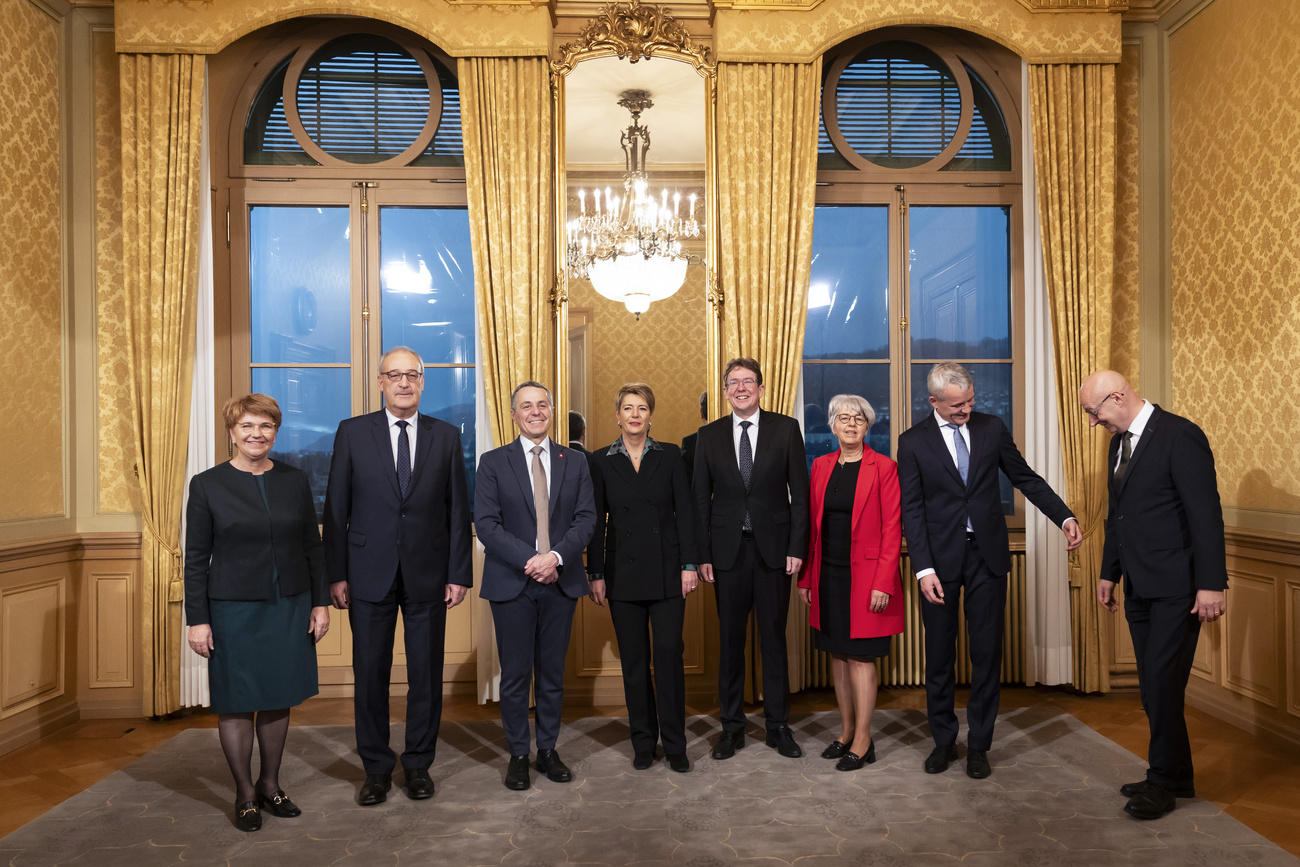
The new interior minister will have to deal with a series of popular votes, but reforms seem a long way off. On the international stage, Switzerland dares to come out of its shell.
The year 2024 is shaping up to be a gruelling one for the new Interior Minister Elisabeth Baume-Schneider. The Social Democrat will have to face at least six popular votes in a year, which will often put her at odds with her party.
This is a rare political challenge that the Federal Councillor has decided to take on herself. After a year at the head of the Federal Department of Justice and Police, criticised by the right for her asylum policy, she wanted to hand over her department to her party comrade Beat Jans.
Just two months after taking over a new cabinet portfolio, Baume-Schneider will have to tackle the thorny issue of pensions on the voting Sunday of March 3. She will have to fight two popular initiatives on the future of Old Age and Survivors’ Insurance, the first pillar of the Swiss pension system.
The old age pension initiative, that came from the ranks of the political left, proposes the payment of a 13th old-age pension. The unions, women’s organisations and pensioners’ organisations behind the initiative believe that the amounts currently paid out are not enough to live on.
However, the government is opposed to this proposal, which would worsen the financial situation of the pension pot, leading to additional expenditure of around CHF5 billion by 2032. The Social Democrat will therefore have to fight her first battle against her own political camp.
The other proposal comes from the right. This is an initiative launched by the Young Radicals, which envisages raising the retirement age to 66 for everyone initially, and then linking it to life expectancy. If the idea does not appeal to the government, it is also unlikely to convince the electorate, which has just agreed to raise the retirement age for women from 64 to 65.
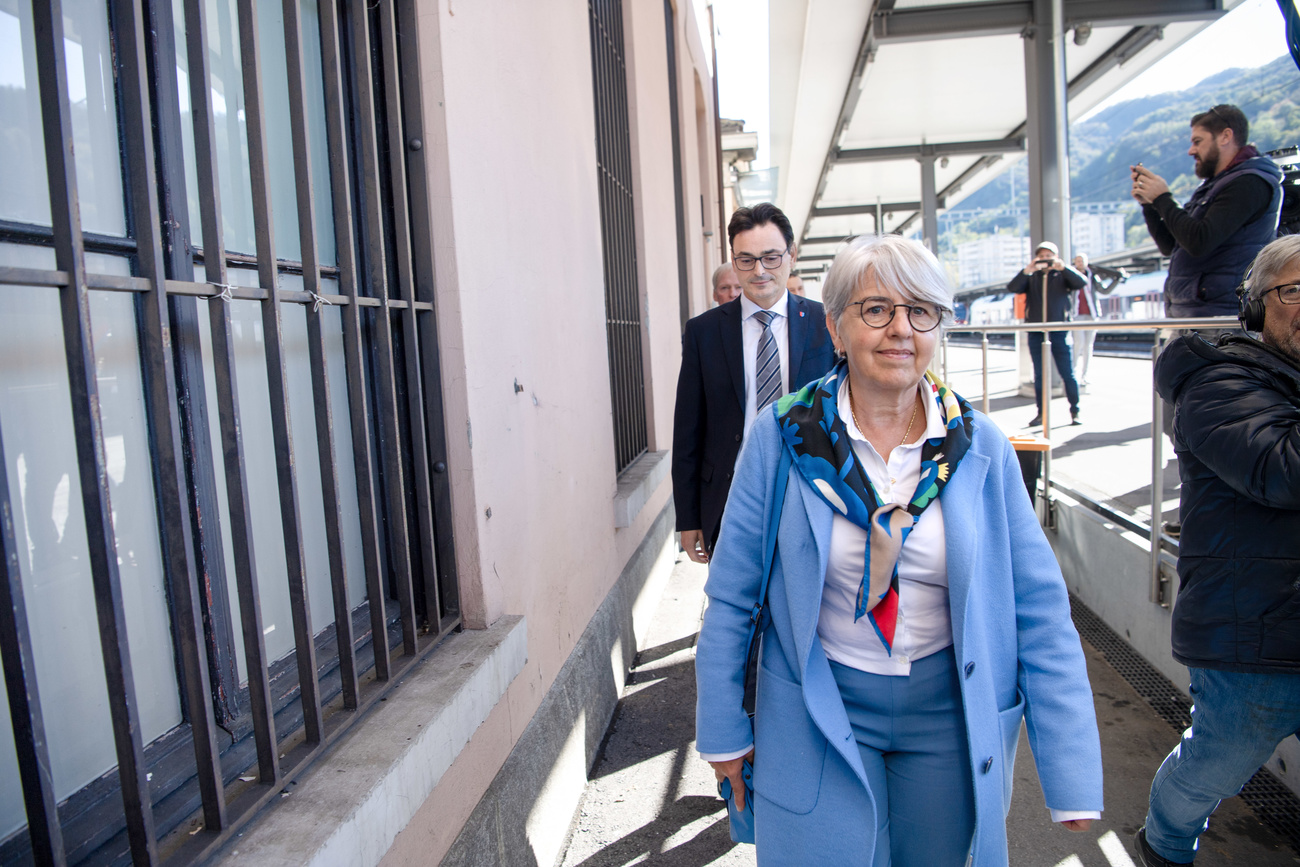
Mission: reforming occupational pension provision
Once this first hurdle has been overcome, Baume-Schneider will still have to battle the pensions issue. This time she will have to defend it, once again against the advice of her party.
Drawn up by parliament and the government, the aim of the bill is to ensure that pensions are financed, since the rise in life expectancy is calling them into question. One way of doing this is to lower the conversion rate. In practical terms, this means that the contributions paid by insured persons will entitle them to a smaller pension than they receive today.
This is unacceptable to the left and the unions, who launched a referendum. Without an agreement between the social welfare partners, the reform will be difficult to pass, especially in a context of persistent inflation.
Solving rising healthcare costs
After the battle over pensions, it will be time to tackle rising healthcare costs, which, according to several surveys, are at the top of the population’s list of concerns. The Swiss continue to see their health insurance premiums rise.
Citizens will be asked to vote on two initiatives aimed at curbing this trend. The Centre’s initiative aims to oblige the government to take action when healthcare costs rise by 20% more than salaries per year. The other, tabled by the Social Democrats, would limit health insurance premiums to 10% of income.
The government is opposed to both proposals, and here again Baume-Schneider will have to lead the fight. The task is a delicate one in an area where previous incumbents have failed to find solutions.
The pandemic, still on the political agenda
Another headache for the interior minister is the popular initiative “For freedom and physical integrity”, also known as the anti-vaccine initiative. Launched in the context of the Covid-19 pandemic by the Swiss Freedom Movement, it calls for an end to compulsory vaccination in Switzerland.
As the Swiss people have already voted three times in favour of the government’s policy to combat the pandemic, the initiative has little chance of success, especially as only the rightwing Swiss People’s Party supports it.
Baume-Schneider will be in the spotlight but she will not be the only one with work to do this year. Her party colleague Beat Jans will be taking his first steps in government as head of the Department of Justice and Police, where he will have to deal with the delicate issue of asylum seekers.
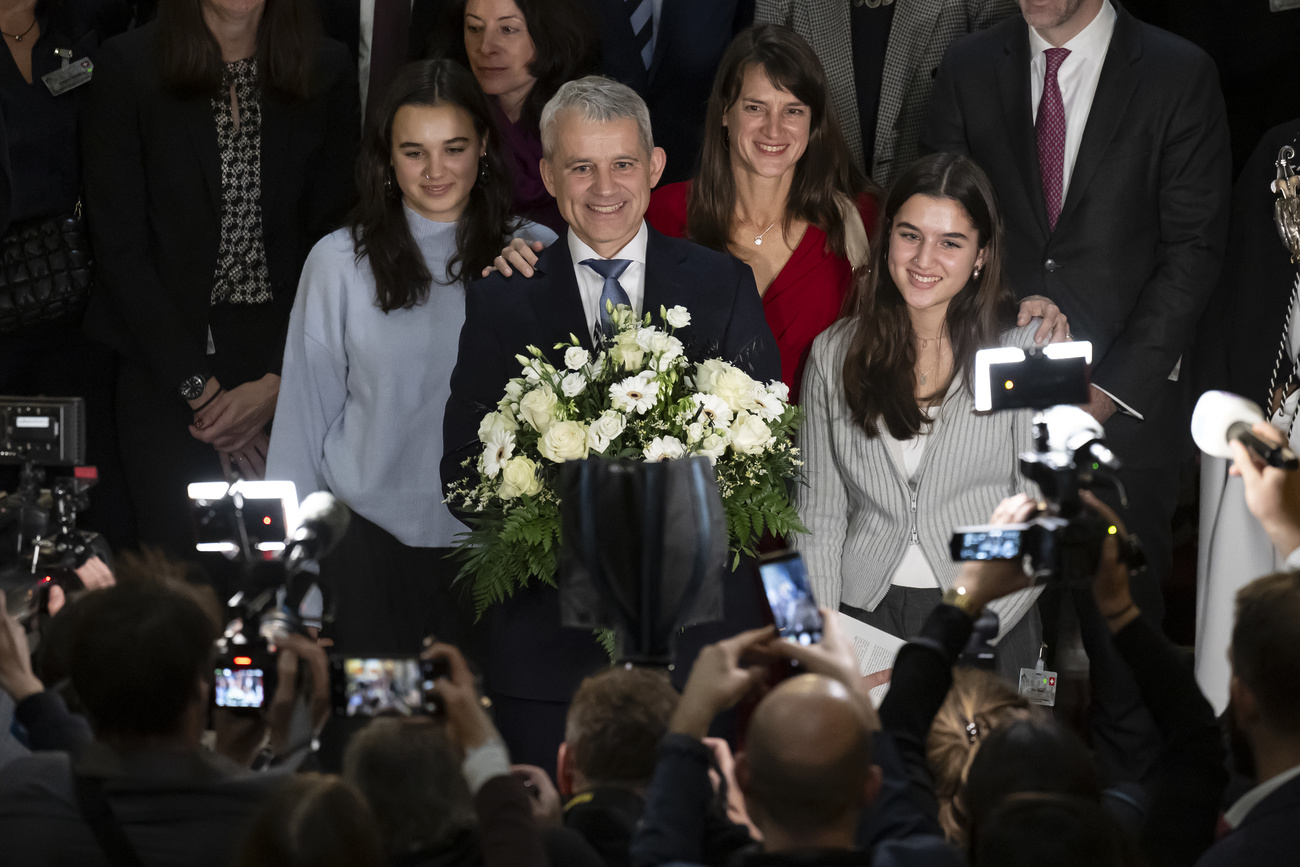
The spectre of the banking crisis
The government will also have to account for its handling of the Credit Suisse affair. In April, it is due to submit a report on the takeover of Credit Suisse by UBS. The aim is to analyse the factors that led to the downfall of Switzerland’s second largest bank, and also to determine why the “too big to fail” regulations did not work.
Parliament is anxiously awaiting the government’s decision on this matter: it wants to ensure that such a failure never happens again.
Following the federal elections in October 2023, the government will also have to deal with a new parliament that is more to the right and less environment focused. With the increased strength of the Swiss People’s Party and the Social Democratic Party in the House of Representatives, it will be more difficult to find compromises. The Centre, which has made progress in both chambers of parliament, will therefore have a central role to play in helping to find majorities to avoid deadlock.
New advances towards Brussels
In foreign policy, 2024 will be the year of closer ties with the European Union (EU). Exploratory talks on a package of cooperation and market access agreements have been more fruitful than expected. Even the most sceptical observers had to acknowledge this when the government presented the results in mid-December.
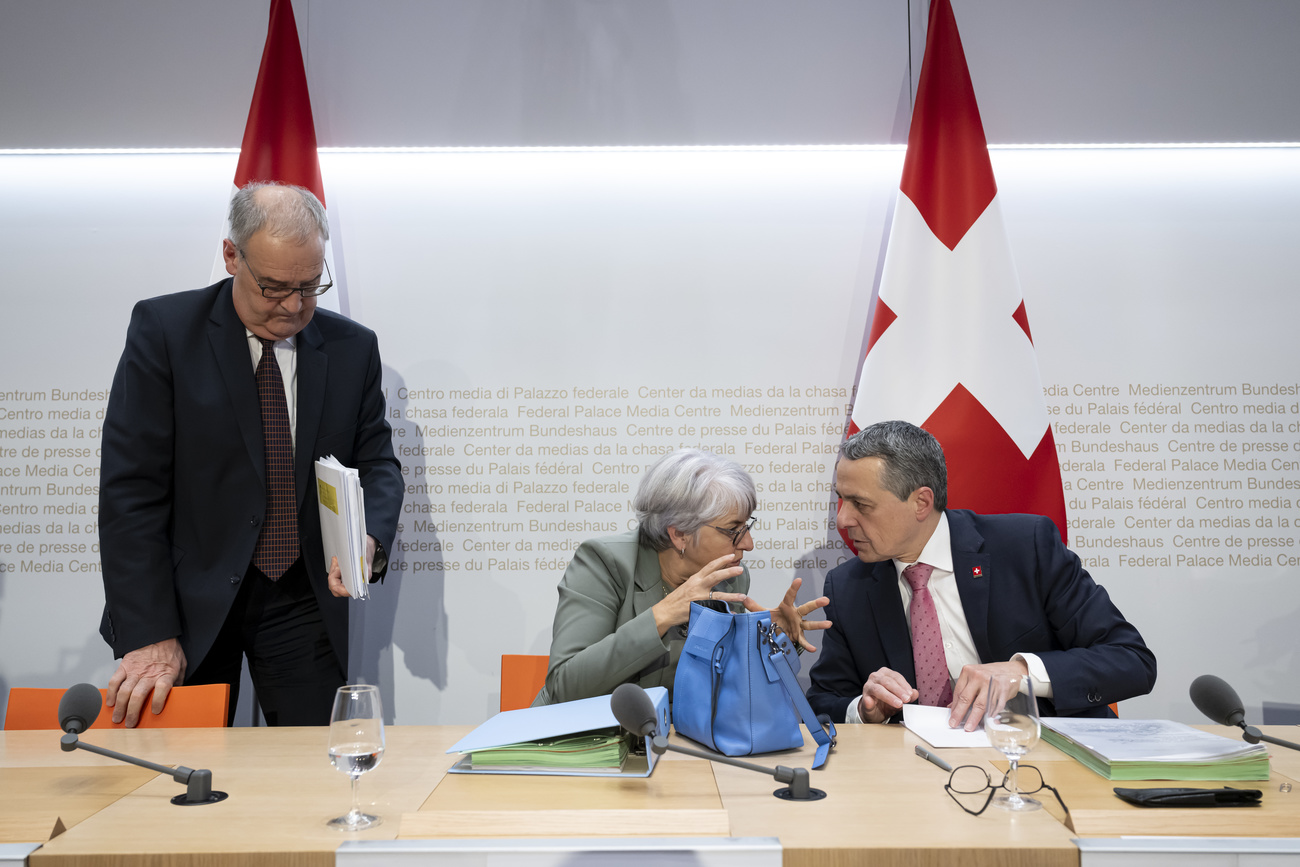
Switzerland has in fact reached agreement with the EU on a number of issues that were previously a source of deadlock, such as the question of the arbitration tribunal in the event of legal disputes, the guillotine clause that applies in the event of the termination of a bilateral agreement, and the directive on European citizenship. The end of the retaliatory measures applied by Brussels to stock exchange equivalence and the Horizon Europe research programme is also on the cards.
The EU now appears to be granting Switzerland the de facto special status it enjoys as an island of high cost and high wages in Europe. However, wage protection remains the Achilles heel of future negotiations. The unions, and with them the Social Democrats, have criticised the solutions outlined as insufficient.
Without the Social Democrats, however, it is difficult to win a vote on the European Union – an international treaty must be subject to a mandatory referendum – especially as the isolationist Swiss People’s Party has already announced its clear rejection of any agreement with Brussels. It would be ironic, to say the least, if it were once again the Europhile Social Democrats who were to stand in the way of closer ties with the EU.
But it would be premature to make any predictions at this stage. In any case, the negotiations to be conducted on the domestic front could prove more delicate than those with Brussels for the government, and more particularly for the Minister of Foreign Affairs, the Liberal-Radical Party representative Ignazio Cassis. Not to mention the imponderables of any negotiation and the fact that the EU is electing a new parliament in the summer and that new people will be taking their place at the negotiating table. The fact remains that, after years of procrastination, Switzerland is coming out of its shell; the text of the agreement should be ready by the end of 2024.
“Art for art’s sake” in New York
Ignazio Cassis remains relatively unpopular in Switzerland. This is shown by the various opinion polls and the rather mediocre score obtained when he was re-elected to the government in mid-December. Has this internal disenchantment driven him into the arms of multilateralism, which he did not appreciate so much at the start of his term of office? No one but he can answer the question.
What is certain is that Cassis appreciates being on the international stage. In 2022, he organised a conference on Ukraine in his hometown of Lugano. Today, the conflict on Europe’s doorstep offers him a second opportunity to shine on the diplomatic stage. Before the World Economic Forum (WEF), Davos will host a new “round of discussions” in January devoted to Ukrainian President Volodymyr Zelensky’s peace plan. However, Russia will not be present at the negotiating table.
This event is an opportunity for Switzerland to reiterate its good offices at a time when the geopolitical context is increasingly marginalising Swiss diplomacy. The UN Security Council, which Switzerland will chair for the second time in October 2024, is a case in point. The major powers with veto power assert their interests there, turning the body into a diplomatic debating club.
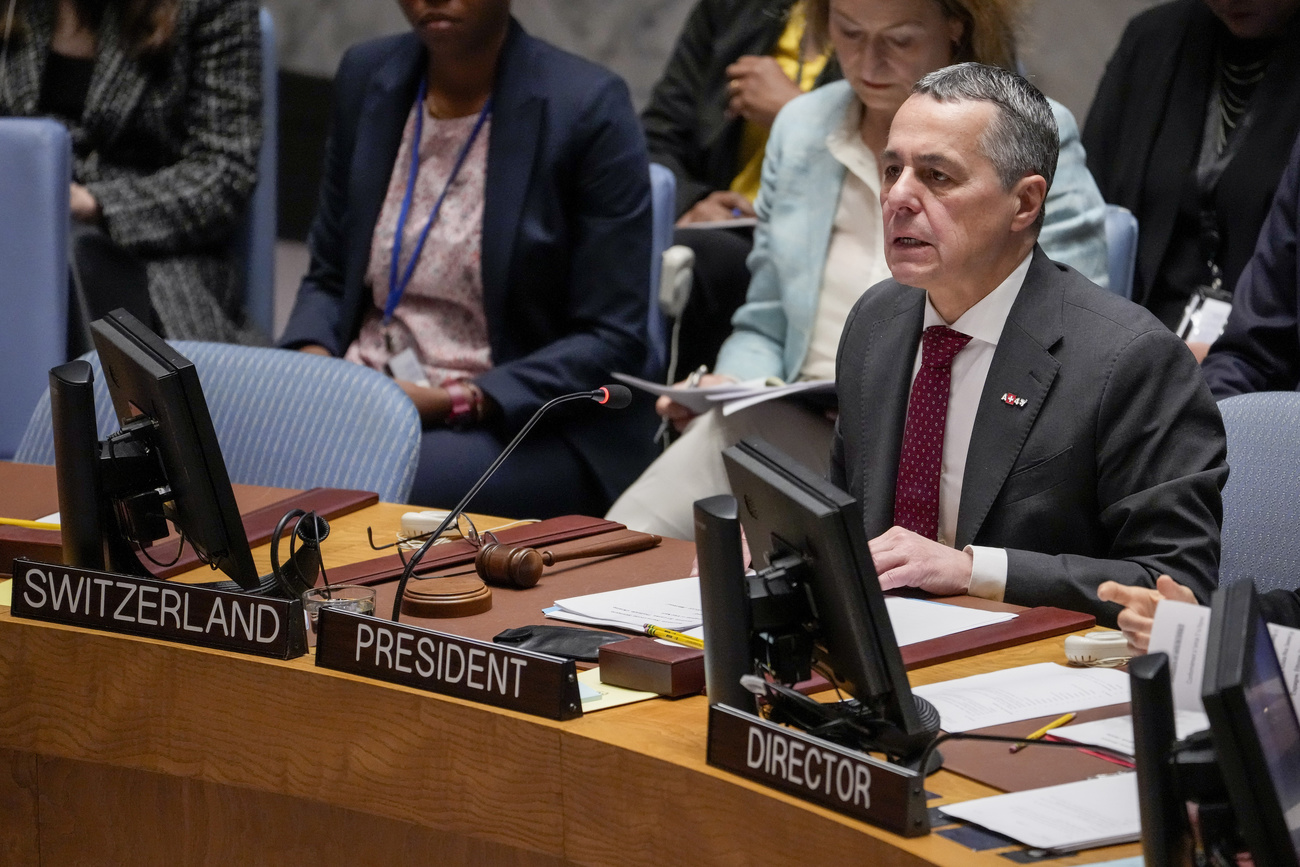
A textbook case of Swiss helplessness revealed itself at the start of its term on the Security Council. The Swiss delegation was delighted with the success of a resolution launched jointly with Brazil, which provided for the Bab al-Hawa border crossing between Turkey and Syria to be kept open. However, Switzerland had to watch helplessly, just a few months later, as Russia vetoed the resolution, cutting off this corridor that is so important for humanitarian aid.
Values give way to interests
On the international stage, the Swiss are still regarded as the “good guys”, those who act without a hidden agenda. This observation reflects a certain naivety on both sides.
In Switzerland, values-based foreign policy is increasingly giving way to a functional approach. Development cooperation is a case in point: at the end of 2024, Switzerland will withdraw from 11 out of 46 countries, including those in Latin America.
The foreign policy strategy focuses on other regions of the world: North Africa, the Middle East and sub-Saharan Africa. Critics see a link between development policy and migration policy.
In any case, Swiss solidarity with the world is not at its best. It is true that Cassis wants to provide Ukraine with reconstruction aid worth six billion dollars over a period of ten years. But the commitment that this should not be at the expense of the rest of the development cooperation budget is being eroded.
After a year of discussions on blocking arms supplies to Ukraine’s allies and implementing sanctions against Russia, during which its foreign policy seemed as defensive and uninspired as its national football team, Switzerland is once again trying to play its own game.

In compliance with the JTI standards
More: SWI swissinfo.ch certified by the Journalism Trust Initiative










You can find an overview of ongoing debates with our journalists here . Please join us!
If you want to start a conversation about a topic raised in this article or want to report factual errors, email us at english@swissinfo.ch.